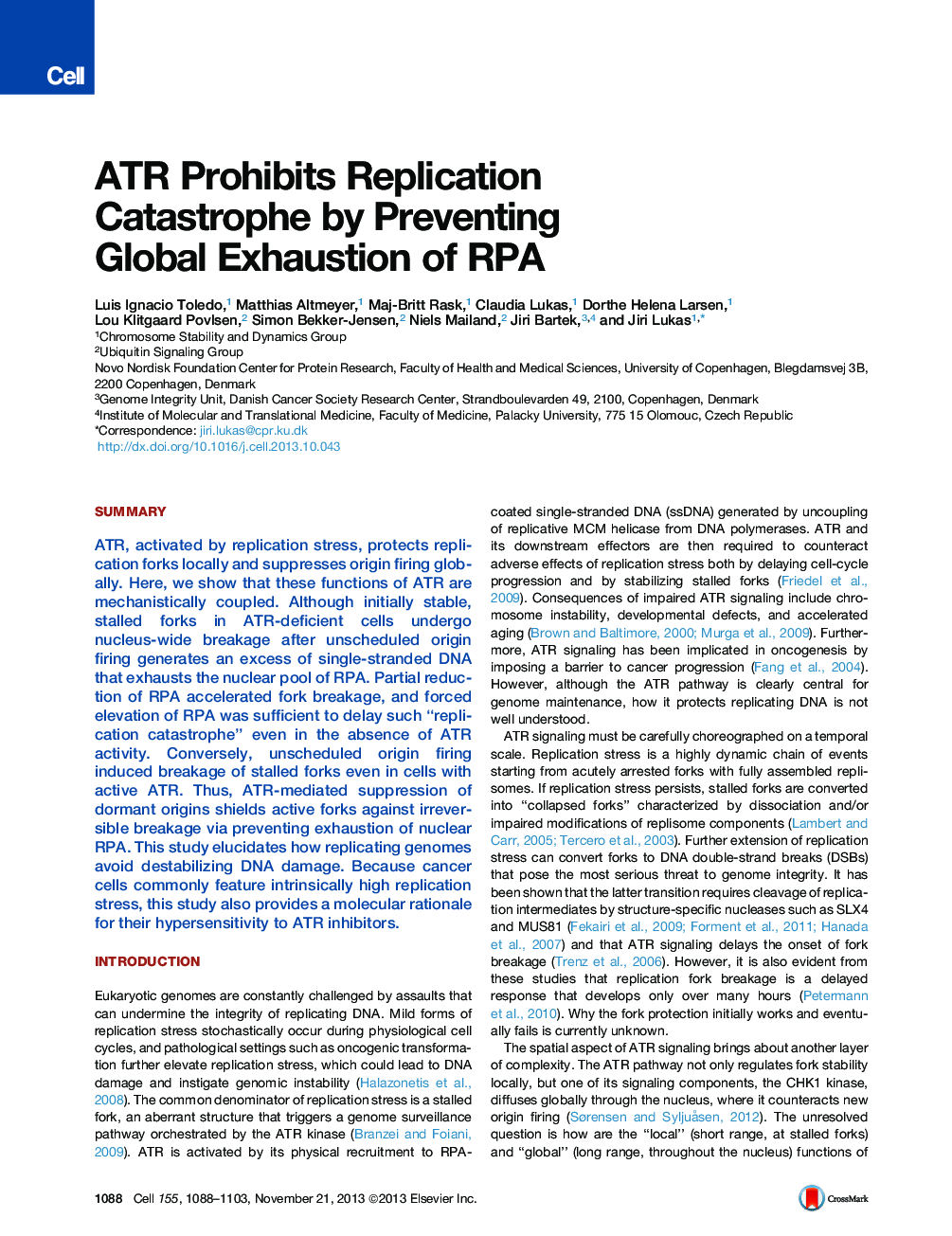| کد مقاله | کد نشریه | سال انتشار | مقاله انگلیسی | نسخه تمام متن |
|---|---|---|---|---|
| 2035647 | 1072201 | 2013 | 16 صفحه PDF | دانلود رایگان |

• RPA is rate limiting for shielding replication forks against breakage
• ATR signaling prevents RPA exhaustion by restraining origin firing
• Exhaustion of RPA leads to pan-nuclear “replication catastrophe”
• RPA exhaustion explains the hypersensitivity of cancer cells to ATR inhibitors
SummaryATR, activated by replication stress, protects replication forks locally and suppresses origin firing globally. Here, we show that these functions of ATR are mechanistically coupled. Although initially stable, stalled forks in ATR-deficient cells undergo nucleus-wide breakage after unscheduled origin firing generates an excess of single-stranded DNA that exhausts the nuclear pool of RPA. Partial reduction of RPA accelerated fork breakage, and forced elevation of RPA was sufficient to delay such “replication catastrophe” even in the absence of ATR activity. Conversely, unscheduled origin firing induced breakage of stalled forks even in cells with active ATR. Thus, ATR-mediated suppression of dormant origins shields active forks against irreversible breakage via preventing exhaustion of nuclear RPA. This study elucidates how replicating genomes avoid destabilizing DNA damage. Because cancer cells commonly feature intrinsically high replication stress, this study also provides a molecular rationale for their hypersensitivity to ATR inhibitors.
Graphical AbstractFigure optionsDownload high-quality image (315 K)Download as PowerPoint slide
Journal: - Volume 155, Issue 5, 21 November 2013, Pages 1088–1103